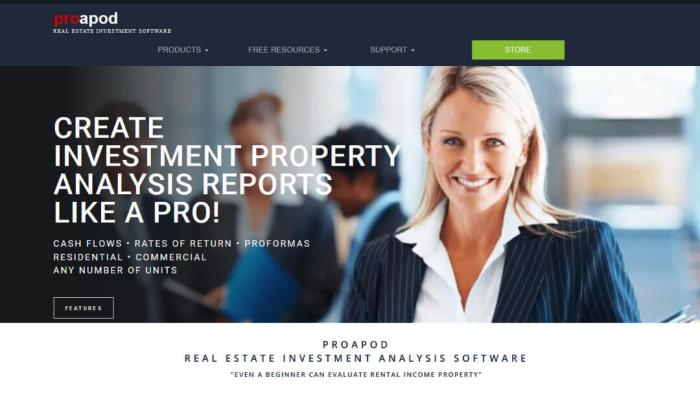Best bookkeeping software for real estate investors – Real estate investing can be a lucrative venture, but maintaining accurate financial records is crucial for success. Choosing the right bookkeeping software can streamline your processes, reduce errors, and provide valuable insights into your investment portfolio. This guide explores the best bookkeeping software options tailored specifically for real estate investors, highlighting key features, benefits, and considerations.
Understanding Your Needs as a Real Estate Investor
Before diving into software options, it’s essential to understand your specific needs. Are you a seasoned investor with multiple properties and complex transactions, or a newer investor managing a smaller portfolio? Consider factors like:

Source: baselane.com
- Number of properties: A single property investor might not require the same level of sophistication as someone managing a portfolio of ten or more.
- Transaction complexity: Do you handle mortgages, renovations, tenant payments, and property management in-house, or do you outsource some of these tasks?
- Budget: Software solutions range in price, from free options to premium packages with advanced features.
- Desired features: Do you need features like automated expense tracking, rental income calculation, or detailed reporting?
Top Bookkeeping Software Options for Real Estate Investors
Several excellent software options cater to real estate investors. We’ll explore some popular choices, highlighting their strengths and weaknesses.
1. Xero
Xero is a popular cloud-based accounting software often praised for its user-friendliness and comprehensive features. It offers robust financial reporting, expense tracking, and automated bank feeds, making it ideal for managing various aspects of real estate investments. Xero’s scalability allows it to grow with your investment portfolio. For investors with multiple properties and significant transactions, Xero often proves valuable.

Source: newsilver.com
Pros: User-friendly interface, comprehensive reporting, automated bank feeds.
Cons: Might not be the most affordable option for very small portfolios.

Source: rethority.com
Relevant s: Real Estate Accounting Software, Cloud Accounting, Xero Features, Xero Real Estate
2. QuickBooks
QuickBooks is a widely used accounting software, known for its versatility and ability to handle diverse financial transactions. It’s particularly suitable for investors who need detailed tracking of expenses and income, and its integration with other real estate-related tools can be helpful. QuickBooks may be more complex for beginners but provides greater control for experienced investors.
Pros: Versatile, extensive features, strong integration capabilities.
Cons: Can be more complex for beginners, potentially higher upfront cost.
Relevant s: QuickBooks for Real Estate, Accounting Software, Real Estate Expenses, Real Estate Income
3. FreshBooks, Best bookkeeping software for real estate investors
FreshBooks focuses on simplifying invoicing and client management, making it suitable for real estate investors who manage their own property management. It excels at tracking client payments, generating invoices, and managing expenses related to tenant relationships.
Pros: Simple invoicing and client management, ideal for property management tasks.
Cons: May lack the advanced reporting features of other options.
Relevant s: Invoicing Software, Tenant Management, Property Management Software, Real Estate Invoicing
Key Features to Look For
Regardless of the software, certain features are essential for real estate investors:
- Automated bank feeds: Import transactions directly from your bank accounts to save time and reduce errors.
- Expense tracking: Categorize and track expenses related to each property for accurate accounting.
- Rental income tracking: Record and monitor rental income from various properties efficiently.
- Detailed reporting: Generate reports on profitability, expenses, and income for each property and overall portfolio.
FAQ
Q: What is the best bookkeeping software for a small real estate portfolio?
A: Options like FreshBooks or a free version of Xero might be suitable for small portfolios. The free versions of some software offer basic functionalities to get started.
Q: How much does bookkeeping software cost?
A: Pricing varies significantly depending on the software and its features. Free trials and introductory offers are often available.
Q: Can I integrate my real estate software with other tools?
A: Many bookkeeping software solutions offer integrations with other real estate-related tools, streamlining your workflow and reducing manual data entry.
Conclusion: Best Bookkeeping Software For Real Estate Investors
Choosing the right bookkeeping software is a crucial step in managing your real estate investments effectively. This guide provides a starting point for evaluating different options and selecting the software that best suits your specific needs, budget, and level of expertise. Remember to consider the features, pricing, and ease of use before making a decision.
Call to Action: Start your free trial today and experience the benefits of streamlined real estate bookkeeping. Visit [link to a reputable bookkeeping software website] to learn more and explore the options available.
Popular Questions
What are some common bookkeeping mistakes real estate investors make?
Many investors overlook proper documentation, leading to inconsistencies and potential tax issues. Others fail to categorize expenses correctly, hindering accurate profit calculations. Keeping detailed records and utilizing a well-organized system are key to avoiding these pitfalls.
How can I integrate this software with other financial tools I already use?
Many top bookkeeping software solutions offer APIs and integrations with popular accounting packages, payment processors, and other financial tools. This allows for seamless data transfer and improved workflow efficiency. Check the software’s compatibility with your existing tools before making a purchase.
What is the cost of the best bookkeeping software for real estate investors?
Pricing for bookkeeping software varies greatly depending on features, support levels, and user volume. Free options exist but often come with limitations. Consider the value of robust features, customer support, and scalability when making your decision.